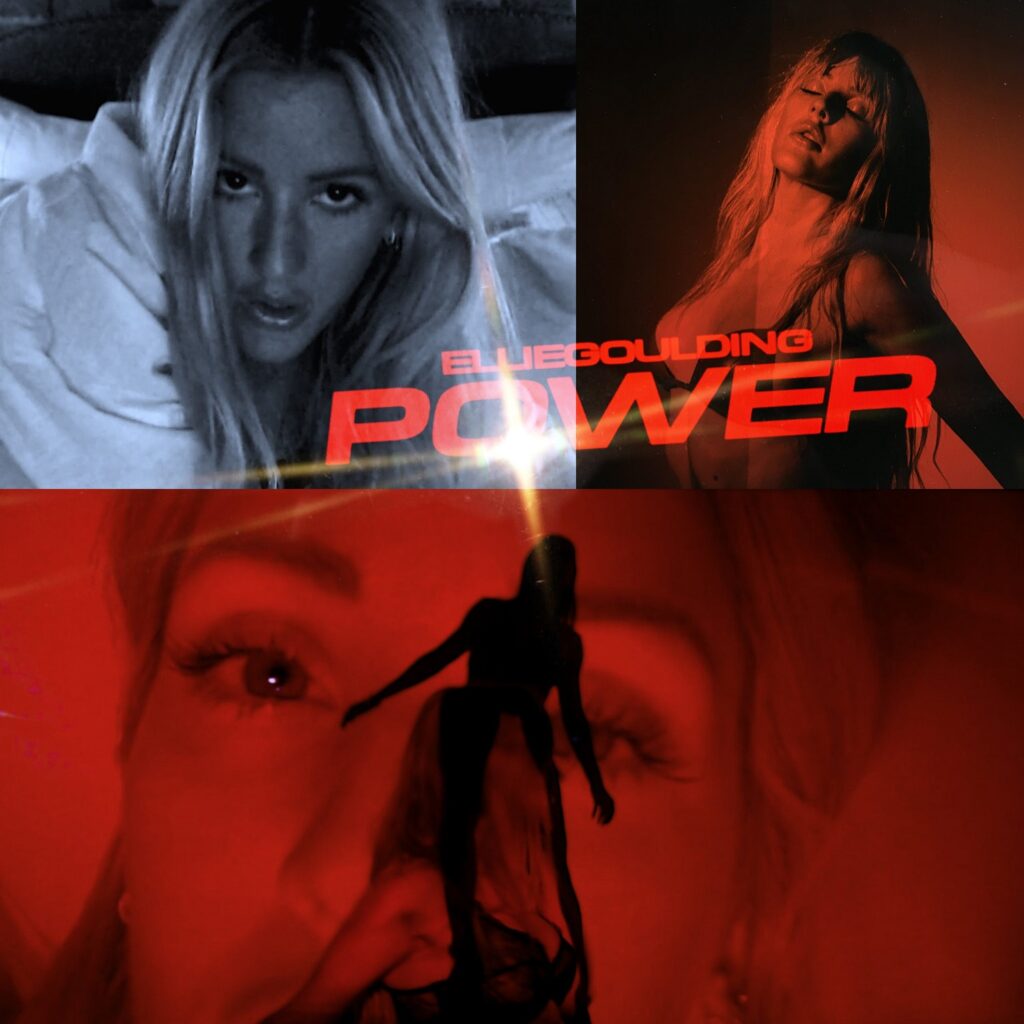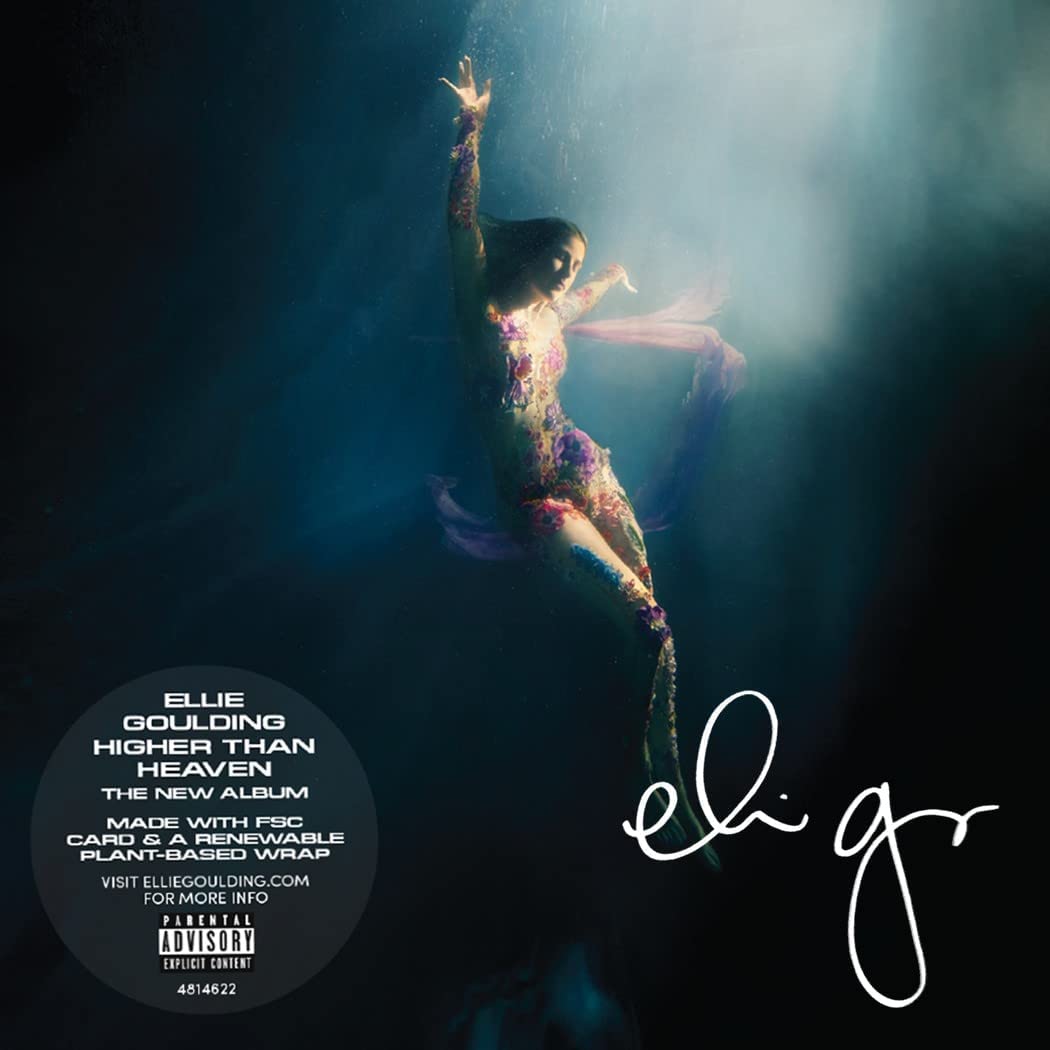Ellie Goulding is BACK! And, like so many of our course writers, she is OBSESSED with love. Which makes her the perfect person to lead a study of our favourite, conundrum-filled emotion!
- MUSIC FOCUS: Ellie Goulding.
- ACTIVITY FOCUS: Analysing Ellie Goulding’s ‘The Power’ and ‘Like A Saviour’ in order to sharpen your ability to debate meaning and show understanding of alternative readings.
ACTIVITY 1
Read through the opening verse of ‘The Power’ by Ellie Goulding and then read my analysis of the language Goulding uses.
The Power
Painted to pure perfection
We had a real connection
Bodies, aching, overtaking
You kept me at a distance
Not asking any questions
Fingers, pressing, learning lessons
“Despite being one of the most studied behaviors, (love) is still the least understood.” Maybe it’s a physical experience. The way the plosive alliteration bursts through the opening line of Ellie Goulding’s ‘The Power’ certainly feels familiar to the experience of coming into contact with someone that you find attractive, and underlines the eruptive nature of desire. We might be used to dismissing physical attraction as a less sophisticated relation of ‘true love’ and, on first reading, perhaps the “Painted” metaphor might seem like an indicator of Goulding’s superficial, one-dimensional interest in the person she’s writing about. But paintings take an enormous amount of time and care to create, and are typically understood as manifestations of deep, complicated thoughts, so perhaps we shouldn’t be too hasty in undermining the value of this moment. The idea of “perfection” is similarly tricksy. Is Goulding depicting a person who matches up to a media-constructed ideal, or is she suggesting – more romantically – that this person is simply in possession of the qualities that she, personally, finds desirable? Perhaps, under the surface of the apparently spontaneous connection being described in the opening moments of ‘The Power’, there’s evidence of a deeper, more spiritual relationship between the two individuals concerned.
Maybe the levels of ‘depth’ are entirely irrelevant when discussing the early stages of love. The alliteration gives that opening line a memorable quality and therefore underlines the appearance of the person being described as somewhat unforgettable. Even if we’re not exploring any kind of spiritual relationship as yet, this kind of physical connection is important – so often it serves as the catalyst for a longer-term bond. Goulding suggests, though, that it’s dangerous too. The excitement of that immediate physical affinity makes sense of the “overtaking” metaphor. The couple are rushing, ignoring the steady average speed of the people around them, and risk of accident increases as a result. And, although those “pressing” fingers serve as evidence of the physical desires being fulfilled – a seemingly happy next step – doesn’t that word “press” have connotations of continuous physical force? And yet our attention’s then drawn to that indulgent ‘l’ sound – inherent in those words “learning” and “lessons”. This creates a sense of enjoyment which somewhat juxtaposes the sensation of being pressed – of being somehow constricted. Maybe the contrast summarises the balance necessary in any relationship: there will be moments of compromise – of concession – but they will be equalled by the pleasure of loving and being loved.
ACTIVITY 2
Read the analysis of ‘The Power’ one more time. Take note of the red sections and the green sections. Within these sections, you can see that I offer opposing viewpoints on the meaning of the particular language being explored. There’s clearly a debate going on throughout the analysis: does ‘physical’ love count as ‘real’ love or not? The areas in green text suggest that, yes, the evidence infers ‘real’ love. The red text flips the argument and looks at the evidence in a more cynical way.

ACTIVITY 3
Read the two verses from Ellie Goulding’s ‘Like A Saviour’ (below). She is describing her relationship and the feelings she has for her partner. Answer this question:
How does Goulding present ideas about love?
Before planning, it might help to note that the focus of ‘Like A Saviour’ is not so much on physical love. Think instead about whether this relationship is healthy or unhealthy. Is it a positive relationship or somehow negative? Does it feel liberating or in some way restrictive? Aim to write one or two paragraphs. Your main job is to show that you can ‘debate’ the interpretation. Explore how certain quotes suggest something positive, but – looked at another way – might suggest something negative. Viewed from one angle, the evidence you analyse will suggest a healthy, liberating relationship. Viewed from another, the evidence you analyse will suggest an unhealthy, restrictive relationship.
Like A Saviour
Spinning in your starlight
You got the power to ease my mind
You’re leading me out of the dark
Like a saviour, shining in my soul, oh, oh
Shot with your arrow
Suddenly, I feel I can let go
Of all the insecurities weighing me down
Now I’m ready to drown in you, you
Like a saviour, I’m out of the dark
Like a saviour, out of the dark
ACTIVITY 4
Now that you’ve had a close look at ‘Like A Saviour’, perhaps you’ll agree that the overarching point Goulding seems to be making is that love – in reality – is complicated! Relationships are made up of both positive and negative facets.
Which quotes from your course texts can be debated in the same way? Make a list of a few quotes from each of the texts you’re studying and bulletpoint the opposing arguments you could make in the case of each. You don’t have to focus on ‘love’ quotes. The aim is to become proficient in the kind of two-sided analysis we’ve practised today. The skill is relevant regardless of the theme you’re exploring.
Please do send your own analysis in. I want to publish the most exciting writing and offer advice.
Now, have a look our ‘Location, Location, Location’ series, including an investigation into Ellie Goulding and Calvin Harris’ ‘Outside’!

